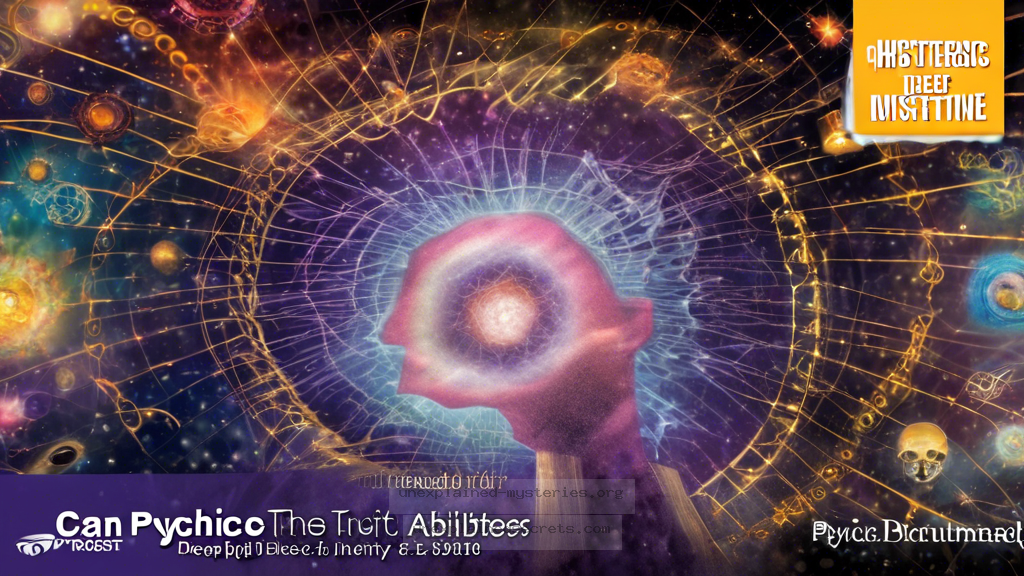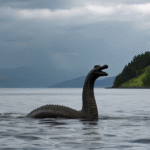Can We Trust the Evidence of Psychic Abilities? A Deep Dive into Documented Cases and Scientific Inquiry
Can We Trust the Evidence of Psychic Abilities? A Deep Dive into Documented Cases and Scientific Inquiry
The question of whether psychic abilities exist has intrigued humanity for centuries, weaving its way through various cultures, scientific inquiries, and personal experiences. Despite numerous claims of psychic phenomena, the critical question remains: can we trust the evidence? This blog post seeks to explore documented cases of psychic abilities, scientific investigations, and the broader implications of these mysteries. By analyzing historical accounts and modern experiments, we aim to understand the validity of psychic phenomena and what it means for our understanding of human potential.
Historical Context of Psychic Phenomena
The roots of psychic phenomena can be traced back to ancient civilizations. Cultures across the globe have reported instances of clairvoyance, telepathy, and precognition, often attributing these abilities to divine intervention or spiritual gifts. For instance, the Oracle of Delphi in ancient Greece was revered for her prophetic insights, and Native American shamans often claimed to have the ability to communicate with the spirit world.
In the 19th century, the rise of Spiritualism brought psychic abilities into the mainstream, with mediums claiming to connect with the deceased. Figures like Edgar Cayce, known as the “Sleeping Prophet,” gained notoriety for their purported psychic readings while in trance states. These historical accounts lay the groundwork for the modern exploration of psychic phenomena, fueling both fascination and skepticism.
Core Concepts of Psychic Abilities
Psychic abilities, often referred to as extrasensory perception (ESP), encompass a range of phenomena, including:
- Clairvoyance: The ability to gain information about an object, person, or event through extrasensory means.
- Telepathy: The transmission of thoughts or feelings between individuals without the use of known human senses.
- Precognition: The ability to perceive or predict future events.
- Psychokinesis: The ability to influence physical objects with the mind.
Despite the lack of scientific consensus on the existence of these abilities, anecdotal evidence continues to emerge, prompting ongoing inquiry into their validity and implications.
Documented Cases of Psychic Phenomena
Several documented cases have captured public interest and provided intriguing insights into the claims of psychic abilities. One notable example is the case of Uri Geller, an Israeli magician and self-proclaimed psychic. Geller gained fame in the 1970s for his ability to bend spoons and perform other feats that he attributed to psychic powers. Despite skepticism from the scientific community, Geller’s performances prompted investigations by researchers, including a famous study by parapsychologist Dr. Richard Wiseman.
Another compelling case involves the research conducted by the Stanford Research Institute (SRI) in the 1970s, where physicist Hal Puthoff and psychologist Russell Targ studied a phenomenon known as Remote Viewing. They claimed to have successfully trained individuals to gather information about distant or unseen targets using psychic means. While the results were controversial and subject to criticism, they marked a significant attempt to apply scientific methodology to the investigation of psychic phenomena.
Scientific Testing and Skepticism
The scientific community remains largely skeptical of psychic claims, often attributing reported phenomena to psychological factors or the placebo effect. Controlled experiments have been conducted to test the validity of psychic abilities, but results have frequently been inconclusive. For example, the Ganzfeld experiments aimed to test telepathy by placing a sender in one room and a receiver in another, with both individuals subjected to sensory deprivation. While some studies reported slight anomalies, the findings have not been consistently replicable, leading to questions about their validity.
Moreover, prominent skeptics like James Randi have challenged psychic claims, offering substantial monetary rewards for demonstrable evidence of psychic abilities under controlled conditions. To date, no one has claimed this prize, further fueling the debate on the legitimacy of psychic phenomena.
Practical Implications of Psychic Abilities
The implications of psychic abilities stretch beyond mere curiosity; they touch upon the fundamental questions of human potential and consciousness. If psychic phenomena were proven valid, it would lead to a paradigm shift in our understanding of the mind and its capabilities. The exploration of psychic abilities could enhance fields such as psychology, neuroscience, and even quantum physics, where the boundaries of perception and reality are often blurred.
Alternative Perspectives on Psychic Abilities
While mainstream science often rejects the validity of psychic phenomena, alternative perspectives exist that embrace the possibility of psychic abilities. Many proponents argue that traditional scientific methods may not fully capture the nuances of human consciousness and extrasensory perception. Books like “The Conscious Universe” by Dean Radin present evidence suggesting that consciousness can extend beyond the individual mind, proposing a more holistic understanding of psychic phenomena.
Additionally, cultures that have long embraced spiritual and metaphysical concepts often view psychic abilities as natural extensions of human potential. In these contexts, psychic phenomena are not just anomalies but integral aspects of life and spirituality.
Common Misconceptions About Psychic Abilities
Despite the growing interest in psychic phenomena, several misconceptions continue to persist. One common misunderstanding is that all psychics can predict the future with precision. In reality, many psychics claim to sense possibilities rather than certainties, emphasizing that free will plays a significant role in shaping outcomes.
Another misconception is that psychic abilities are solely mystical or supernatural. Many practitioners argue that these skills can be developed through practice and training, akin to honing a talent. This perspective aligns with the notion that everyone has latent abilities waiting to be uncovered.
Best Practices for Investigating Psychic Claims
For those interested in exploring psychic phenomena, there are several best practices to consider. Firstly, maintaining a skeptical yet open-minded approach is essential. Engaging in controlled experiments and documentation can help in evaluating claims critically.
Additionally, it is vital to differentiate between entertainment and genuine psychic claims. Many individuals who perform psychic readings are skilled entertainers rather than true psychics, and understanding this distinction is crucial for anyone interested in the field.
Future Developments and Ongoing Research
The study of psychic abilities is far from over. Ongoing research in areas such as quantum consciousness and the exploration of the brain’s potential continues to shed light on the complexities of human experience. New technologies and methodologies, including brain imaging, may offer insights into the mechanisms behind psychic phenomena.
Moreover, as society becomes more open to discussing spirituality and consciousness, interdisciplinary collaborations may emerge, bridging psychology, neuroscience, and parapsychology in the quest to understand human potential better.
Conclusion: A Journey into the Unknown
The question of whether we can trust the evidence of psychic abilities remains a captivating enigma. While documented cases and scientific investigations provide intriguing glimpses into the possibilities, skepticism and alternative perspectives continue to shape the discourse. As we navigate the complexities of the human mind and consciousness, the exploration of psychic phenomena invites us to reconsider the boundaries of perception and reality.
Ultimately, whether one views psychic abilities as genuine phenomena or mere illusions, the journey into the unknown fosters curiosity, exploration, and an appreciation for the mysteries of existence. As we continue to seek answers, the inquiry into psychic abilities serves as a testament to humanity’s enduring quest for understanding. 🌌
Other Articles
Recent Posts
- What Happened to Flight MH370? The Conspiracy Theories That Still Haunt Us
- What Secrets Lurk Within the Walls of the Infamous Trans-Allegheny Lunatic Asylum?
- What Evidence Supports the Existence of Bigfoot in the Pacific Northwest?
- What Happened to the Indus Valley Civilization? Unraveling the Mysteries of Ancient Urban Life
- Can Telepathy Be Scientifically Proven Through Laboratory Evidence?







